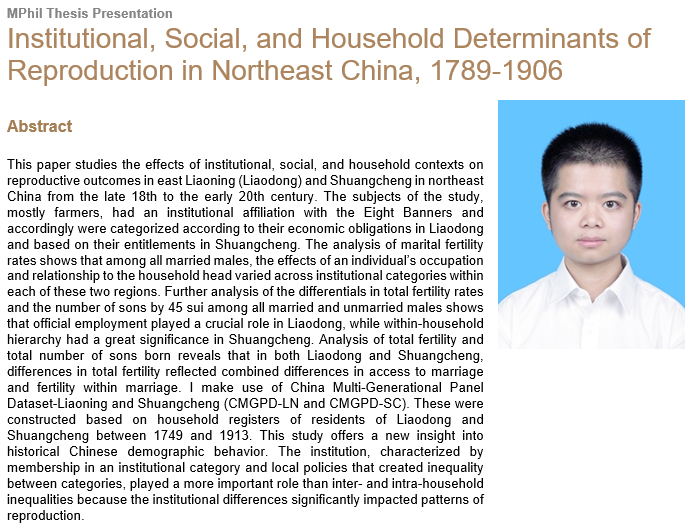Abstract
This paper studies the effects of institutional, social, and household contexts on reproductive outcomes in east Liaoning (Liaodong) and Shuangcheng in northeast China from the late 18th to the early 20th century. The subjects of the study, mostly farmers, had an institutional affiliation with the Eight Banners and accordingly were categorized according to their economic obligations in Liaodong and based on their entitlements in Shuangcheng. The analysis of marital fertility rates shows that among all married males, the effects of an individual’s occupation and relationship to the household head varied across institutional categories within each of these two regions. Further analysis of the differentials in total fertility rates and the number of sons by 45 sui among all married and unmarried males shows that official employment played a crucial role in Liaodong, while within-household hierarchy had a great significance in Shuangcheng. Analysis of total fertility and total number of sons born reveals that in both Liaodong and Shuangcheng, differences in total fertility reflected combined differences in access to marriage and fertility within marriage. I make use of China Multi-Generational Panel Dataset-Liaoning and Shuangcheng (CMGPD-LN and CMGPD-SC). These were constructed based on household registers of residents of Liaodong and Shuangcheng between 1749 and 1913. This study offers a new insight into historical Chinese demographic behavior. The institution, characterized by membership in an institutional category and local policies that created inequality between categories, played a more important role than inter- and intra-household inequalities because the institutional differences significantly impacted patterns of reproduction.

